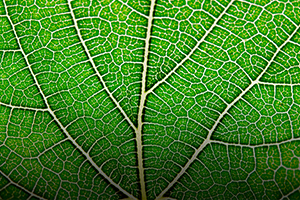Bionic Leaf
 Harvard scientists have developed a new hybrid microbial/artificial leaf system that is capable of converting sunlight and water into liquid biofuels – a breakthrough that could not only eliminate the need for fossil fuels, but also provide a storage mechanism for large-scale distributed deployment of solar energy.
Harvard scientists have developed a new hybrid microbial/artificial leaf system that is capable of converting sunlight and water into liquid biofuels – a breakthrough that could not only eliminate the need for fossil fuels, but also provide a storage mechanism for large-scale distributed deployment of solar energy.
Although earlier versions of the artificial leaf, which use sunlight to split water into oxygen and hydrogen, have been reported, this latest development combines that concept with a bio-engineered bacterium known as Ralstonia eutropha which goes a step further, converting the hydrogen and carbon dioxide into isoproponal and other usable fusel alcohols.
The system can convert solar energy to biomass with an efficiency of 10 percent, far exceeding the fastest growing plants, which operate at only about 1 percent efficiency. In addition, solar-to-fuel yields have been demonstrated to be about 6.7 percent. In principle, the platform could be adapted to make other carbon-based molecules as well. In fact, it’s already been used to create PHB, a precursor to bioplastics.
For information: Daniel Nocera, Harvard University, 12 Oxford Street, Cambridge, MA 02138; phone: 617-495-8904; email: dnocera@fas.harvard.edu; Web site: http://www.harvard.edu or http://nocera.harvard.edu/Home